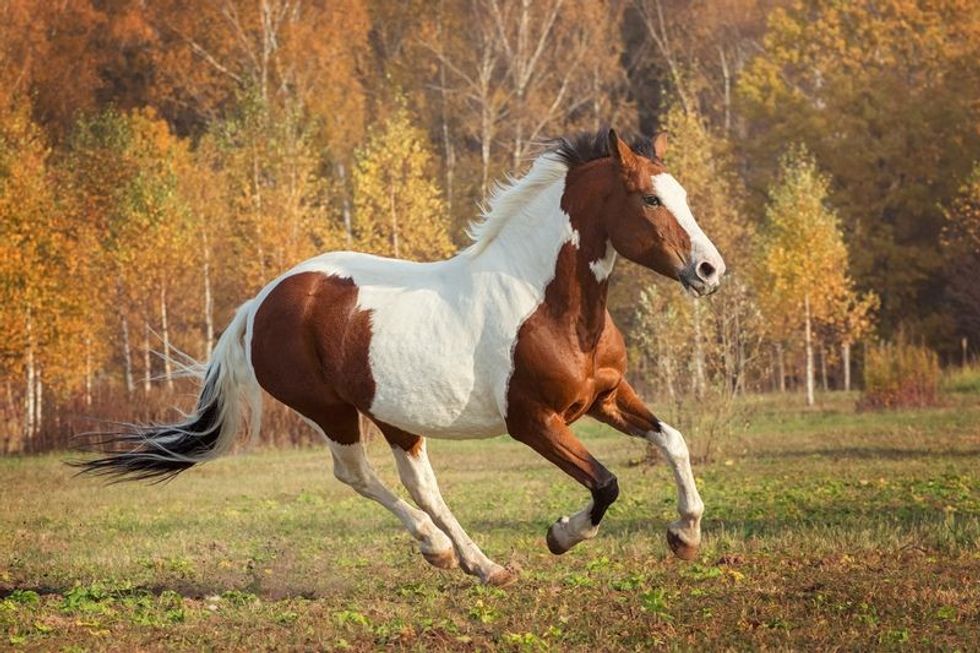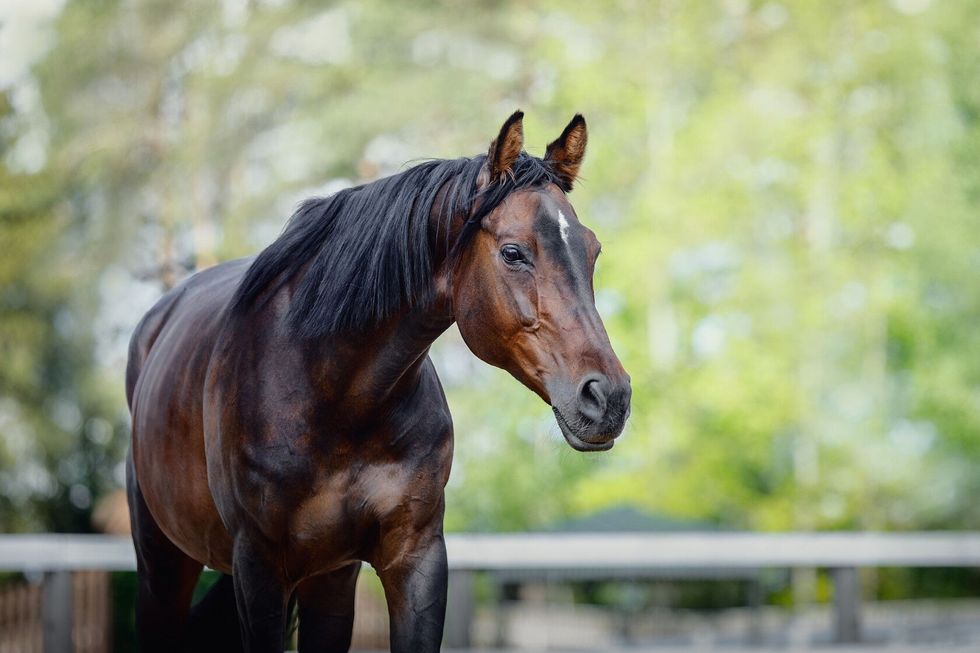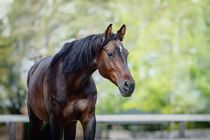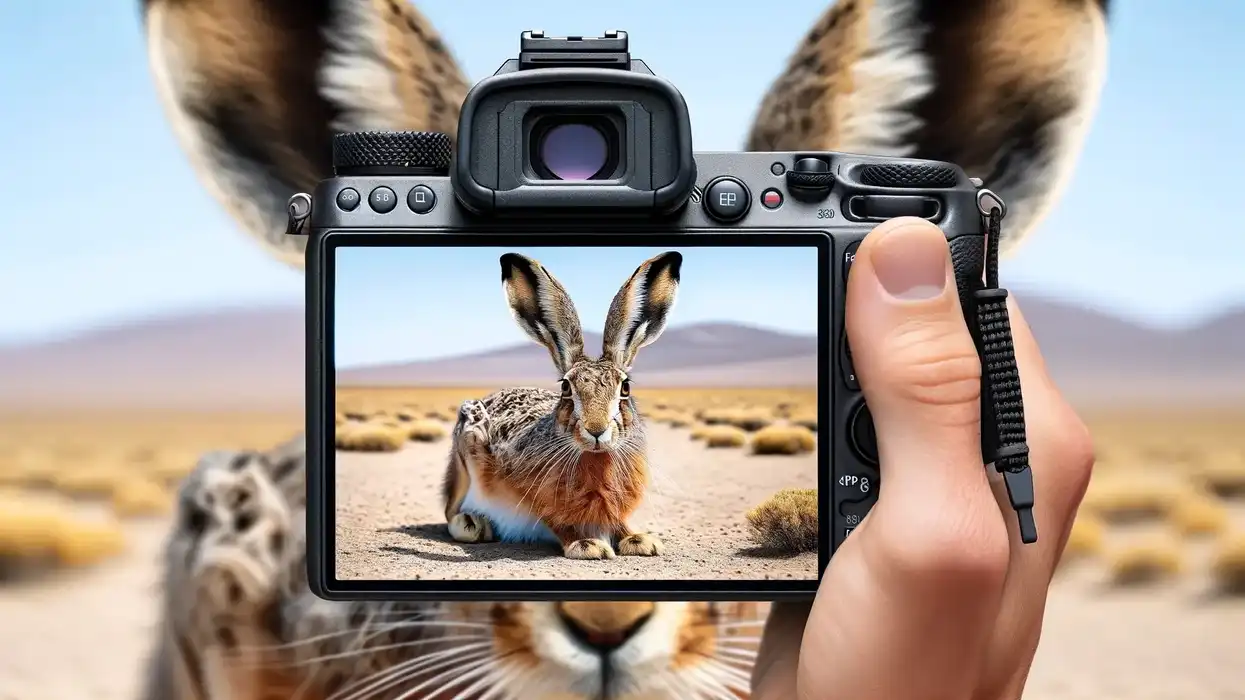Understanding What Your Horse Ears Are Trying To Tell You

Have you ever dreamt of riding on a horse just like the ones in fairy tales?
Don’t you want to be a part of any fairy tale? Horses have always been a part of the royal culture. They are still closely connected with royalty to this day.
Horses are one of the most fascinating creatures on this planet. They are considered royal because of their strong body, capabilities, and intelligence.
Horses have the largest eyes of all land mammals allowing them to focus behind as well as in front. These eyes are situated on the sides of their head, which provide them a 360 degrees view.
The hearing capabilities are also a reason behind the intelligence of this animal. They can hear the sound of a varied range of frequencies and identify the related source. They can also determine the direction of the sound by their ears.
Isn’t it amazing? Join us to know more about the physical structure of a horse and the reasons behind how they are able to hear slightly better than humans.
Afterward, also focus on other related fact files about horse gaits and horse daily sleep.
What are horse ears called?
A horse's ears are one of the most fascinating parts of its body. The horse has ears in the shape of the wings of an airplane. So, the horse’s ears are also sometimes referred to as airplane ears. They use their ears for various purposes like hearing sounds, signals, communicating, expressing, and detecting the location of sounds.
A horse’s ears are very vital for it. Do you know that a horse can hear better than it can see?
The hearing capacities of the horses are far better than their visual capacities. Instead of having such big eyes, their ears are more important to them. A horse ear has many different parts which enable it to hear so clearly and differentiate between different voices and sounds.
Horses can change the position of their ears to express a lot of different things. They can move their ears forward, backward, drop them, or extend them.
Each of the different positions of the horse ears tells a different thing about them. The owners can understand the behavior and signals of the horse just by looking at the position of their ears. They can tell whether their horse is in pain or happy.
There are many other things that also tell the horse owners about the behavior and mood of their equine friend and help them to control the horse. They just need to give some attention to these little things.
Why do horses signal with their ears?
Animals have different forms of communication mechanisms. Some use their body posture to communicate, some make strange noises to communicate, similarly horses signal with their ears to communicate or to express certain things.
Animals can not speak like humans to explain how they are feeling or what they need, so they use certain body parts like their ears, nose, and legs to express their feelings.
Horses make different gestures with their ears to communicate and convey the message of their feelings. The positioning of the ears of these animals indicates a lot of things like comfort, anger, danger, fear, and pain.
Horses extend their ears when they feel comfortable. So, if you are riding a horse and it extends its ears, then feel happy about it because the horse is feeling comfortable with you.
When in fear, horses turn their ears back. Can you turn your ears back?
Of course not, you are not a horse, and you can tell everyone by words that you are in fear.
But horses can't do that, so they turn their ears back to indicate that they have a fear of something, that something can be in the surroundings or it may be a fear of meeting new people, so it is signaling you that it does not want to meet anyone.
Horses pin their ears completely back when they are angry. If the horse you are riding has its ears pinned back, then be careful, because it is angry.
Horses express their anger by pinning their ears, so a horse with its ears pinned back is not a good horse to play with. Flattened ears of horses are the most aggressive form of signal. Horses convey the message by pinning their ears that they are ready to fight.
This can be a warning of an upcoming danger. Take this warning seriously and look out for any danger nearby.
How well can a horse hear?
Horses' ears are a very wonderful part of their bodies. Horses’ hearing is very well developed, even more than humans.
Horses use their ears for mainly three purposes other than signaling - to detect the sound, to detect the location of the sound, and to identify the sound. Horses’ ears move in the direction of any sound that they hear. Sometimes your equine friend moves its head also in the direction of the sound.
A human’s ear and a horse’s ear have the same range of hearing, but the horse’s ears can turn 180 degrees from front to back to provide them a greater area to cover to detect the sound which makes them better than humans. A horse has the ability to hear low frequencies to very high frequencies of sounds.
This is why horses respond to a command of very low volume. Horses' ears are very sensitive so you do not have to shout to give it a command.
Horses can also identify the tone of your voice. So you should always command with a confident voice if you want your horse to listen to you. They can also detect the emotional sense of the tone of your voice.
They can distinguish one person’s voice from another. This is why they only listen to their owner and not everyone. This is one of the reasons why horses are considered very smart animals.
If the horse identifies the source of a sound is as something which is non-threatening, the horse tends to remain completely calm but if the source of noise is perceived as a threat, the young horse might go out of control.
Can horses lose their hearing?
Have you ever seen an old person who can not hear properly as you do? This is because they lose their hearing abilities with age.
As the body grows old, many parts of the human body stop working properly. Just like humans, animals can suffer hearing loss related to aging. Horses can also lose their hearing abilities with age just like we humans do, and can face some issues communicating efficiently.
Losing the hearing abilities of a horse does not appear as significant as in humans. But hearing loss can affect a horse’s normal behavior and communication.
As you know, horse ears play a very important role in providing information about their surroundings in an efficient way. If a horse loses its usual hearing capacities it may lead to frustrated and irritated behavior of the horse.
This loss of normal hearing capacities is because of the loud noise present in the environment. Horses do not live in the same environment in which they used to live at earlier ages.
They live in the stables, mostly near the cities. If they do not live near the cities, they are brought to the cities by their owners for many reasons. This leads to hearing impairment in your equine buddies, as well as in humans and other animals.
Although horses can lose their hearing efficiency in older years, it is a very rare case to become a deaf horse for these reasons. Horses can be deaf if they are born deaf.
Some breeds are more likely to be born deaf than others. Breeds with extremely bald faces and variable white markings on their body have the most chances of being a deaf horse. This hearing difference is a result of a genetic mutation within the body.
Why do people cut horses ears?
You might wonder why trainers cut horse ears when horses communicate through the ears? But the fact of the matter is that horse ear clipping is actually quite a common practice when it comes to show horses.
The main reason that people clip horses' ears is to prevent the hair from falling inside the ear of the horse and help improve its hearing. Moreover, it also makes life a bit more comfortable for the horse.
Make sure to not cut the hair from the inner side of the ear as it would take away the horse's natural protection from flies and insects.

How to read your horse's ears?
As you know, horse ears can convey different meanings. Horses can express their feelings with the position of their ears.
If you are riding a horse and you see that your horse has turned its back towards you, then this means that it is very comfortable with you and listening to you. It is keen to listen to your command and is not afraid of you.
If your horse is pricking its ears, then this means that it is startled and alert. This implies that it is not much interested in listening to you.
Whatever command you give it, it won’t follow it. There is no use in commanding it to calm down or do something else.
If your horse pricks its ears and makes them stiff while you are riding on it, it means that it is paying no attention to your command, and is focused on something else. It might have heard something, to which it wants to give more attention to than your command.
When a horse's ears are droopy, this means that the horse is trying to convey that it is tired and can not do any training or work. This also shows that your horse needs some rest, and is about to sleep.
In this case, also, it won’t listen to your command and wants to rest. Droopy ears also imply that the horse has accepted the dominant horse’s authority and has no interest in fighting with it.
Horses extend their ears when they are relaxed and comfortable with you. In this case, it will listen to every command you give it with great attention. They pinned their ears to show aggression and turned them back to show that they were in fear. When these animals are under stress they start to flicker their ears.
You can use these observations to know what your horse is up to. You can also understand a lot about its behavior, like what makes it happy, what makes it angry, and what fears it has.
Calming A Horse With Flickering Ears
Do you feel anxious about anything? Do you know that horses can also get anxious? When horses are anxious or under stress they start to flicker their ears.
First, they turn their ears back, and then after some time, they start to flicker. This shows that they feel fear or danger from something and now they are stressed about it. In fact, every stress starts with a little fear.
Horses may be stressed about meeting new friends, stressed about being inferior, about their surroundings, or about something else which you can not recognize.
In this case, you need to take some action to stop that flickering and calm down your horse. You can start by calmly talking to it and taking it a few yards away from the other horses to ensure its peace.
Maybe it is feeling anxious in front of other horses, so taking it away from other horses can be a good idea. It also gives you private time with your horse to talk calmly where it can be free from any danger.
The cause of flickering may be because of the surroundings like some noises or any bad smell. Horses can get stressed by a bad environment. If this is the case, then you remove the things from its surroundings that are bothering it. This can quickly calm down your horse.
The reason for stress is different for every horse as it is different for every being. You must know some things which your horse loves to do. You can engage in those activities.
It also has an instant calming effect on the horse’s flickering ears. Some horses love to play with certain toys, while some love to listen to the radio. If you do not know what your horse loves, then you can try these things and find out what makes your horse a calm one.
Caring For Your Horses Ears
Horse’s ears are very important to them as you may have learned in this article. But your equine buddy’s ears can get infected by insects like flies and mosquitoes.
You need to protect its ears by caring for them in an efficient way if there are any signs of damage.
You can use fly repellent spray or ointments to keep the flies away from your friend’s ears. But be careful while using them, do not spray the ointment too deep in the horse’s ears as this can be harmful to them.
You can also buy full-face masks for your horse to keep it safe from the flies and other insects which may attack it in the open grass areas.
Your equine buddy may not like to wear a mask that covers the entire face including ears. But there are many stylish masks available in the market which you can buy for your horse.
Generally, if a horse is in pain, it will not be inclined to move and if asked to move, will refuse to move at all or would move more slowly
Trainers also trim the hair on the part of the ears of the horse. The hair provides the flies an additional space to wander. If there is no hair then there will be no or fewer flies on your horse’s ears.
You should also keep your horse’s ears clean by washing them from time to time. Good hygiene is essential in preventing a number of diseases, irritation, and suffering.
If your horse is clean this means your horse is healthy. Even if the flies irritate it by their buzzing or filthy bodies, your horse can not be bothered by them as it has clean ears and you will again clean them after they get dirty.
To ensure your horse’s health you have to give it the required amount of attention. In case of any signs of injury or inflammation, consult a veterinarian.
Here at Kidadl, we have carefully created lots of interesting family-friendly facts for everyone to enjoy! If you liked our suggestions for horse ears then why not take a look at how to tame a horse, or horse facts.
We Want Your Photos!
More for You
See All
Doctorate specializing in Veterinary Medicine

Oluniyi AkandeDoctorate specializing in Veterinary Medicine
With an accomplished background as a Veterinarian, SEO content writer, and public speaker, Oluniyi brings a wealth of skills and experience to his work. Holding a Doctor of Veterinary Medicine degree from the University of Ibadan, he provides exceptional consulting services to pet owners, animal farms, and agricultural establishments. Oluniyi's impressive writing career spans over five years, during which he has produced over 5000 high-quality short- and long-form pieces of content. His versatility shines through as he tackles a diverse array of topics, including pets, real estate, sports, games, technology, landscaping, healthcare, cosmetics, personal loans, debt management, construction, and agriculture.
Disclaimer
1) Kidadl is independent and to make our service free to you the reader we are supported by advertising. We hope you love our recommendations for products and services! What we suggest is selected independently by the Kidadl team. If you purchase using the Buy Now button we may earn a small commission. This does not influence our choices. Prices are correct and items are available at the time the article was published but we cannot guarantee that on the time of reading. Please note that Kidadl is a participant in the Amazon Services LLC Associates Program, an affiliate advertising program designed to provide a means for sites to earn advertising fees by advertising and linking to Amazon. We also link to other websites, but are not responsible for their content.
2) At Kidadl, we strive to recommend the very best activities and events. We will always aim to give you accurate information at the date of publication - however, information does change, so it’s important you do your own research, double-check and make the decision that is right for your family. We recognise that not all activities and ideas are appropriate for all children and families or in all circumstances. Our recommended activities are based on age but these are a guide. We recommend that these ideas are used as inspiration, that ideas are undertaken with appropriate adult supervision, and that each adult uses their own discretion and knowledge of their children to consider the safety and suitability. Kidadl cannot accept liability for the execution of these ideas, and parental supervision is advised at all times, as safety is paramount. Anyone using the information provided by Kidadl does so at their own risk and we can not accept liability if things go wrong.
3) Because we are an educational resource, we have quotes and facts about a range of historical and modern figures. We do not endorse the actions of or rhetoric of all the people included in these collections, but we think they are important for growing minds to learn about under the guidance of parents or guardians.







